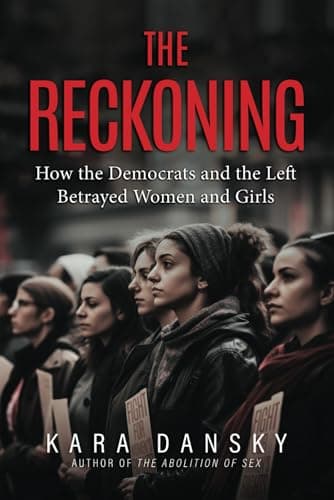New Documentary 'Behind the Looking Glass' Alleges Abuse of Female Partners of Transgender-Identifying Men

Gender-critical advocate Kara Dansky recently highlighted the experiences of female partners of men who identify as women, asserting that these women are subjected to abuse through societal pressure. In a tweet, Dansky referenced Vaishnavi Sundar's film, "Behind the Looking Glass," which she described as the "first-ever documentary about transwidows." The film and Dansky's statements bring attention to a contentious area within discussions on gender identity.
Kara Dansky, an American attorney and prominent gender-critical activist, serves as the president of the American chapter of Women's Declaration International. She is known for her advocacy for sex-based rights for women and girls, often critiquing what she terms the "transgender agenda." Her work, including books like "The Abolition of Sex: How the 'Transgender' Agenda Harms Women and Girls," centers on the belief that biological sex is immutable and distinct from gender identity.
Vaishnavi Sundar's documentary, "Behind the Looking Glass," explores the narratives of women who identify as "transwidows," a term used by some to describe women whose male partners transition to identify as female. The film, which Dansky noted is available for free on platforms like YouTube and X, aims to shed light on the personal challenges and alleged coercion these women face within their relationships.
According to Dansky's tweet, the women featured in Sundar's film report being pressured by therapists, family members, and others. They were allegedly told that "if they didn't accept their male partners' 'identity,' no matter how uncomfortable it made them, they were being prudish at best and unaccepting at worst." This sentiment challenges the notion that private consensual acts are beyond external scrutiny, arguing that the female partners are indeed being abused.
The term "transwidows" itself is highly controversial, with some women identifying with it to describe the perceived loss of their heterosexual marriage and male partner, while many within the transgender community and their allies find it offensive. Critics argue the term implies the male partner has died or that their new identity is not real, highlighting a fundamental disagreement over the nature of gender identity and its impact on relationships. This ongoing debate underscores the complex and often painful experiences at the intersection of personal identity and societal expectations.